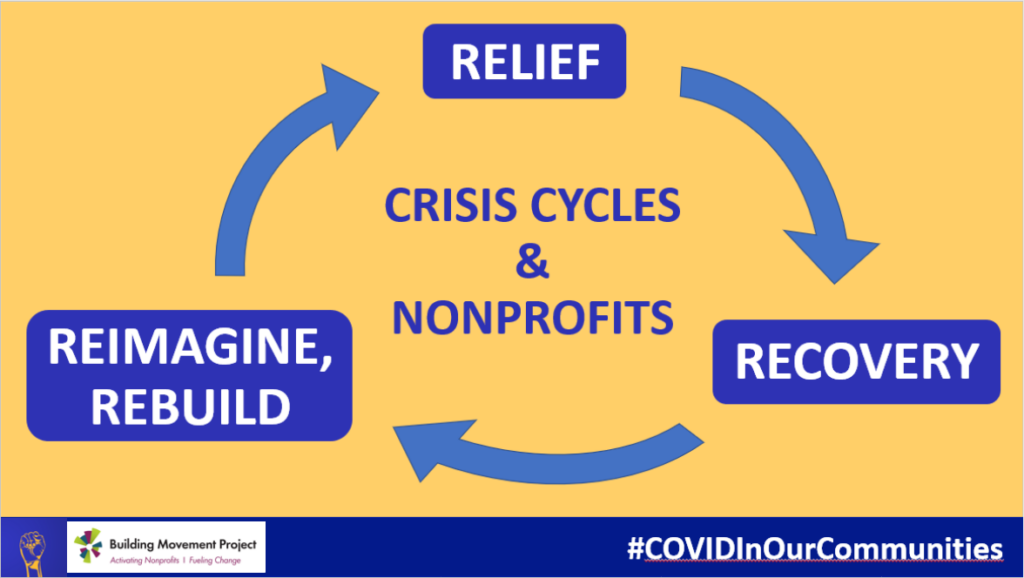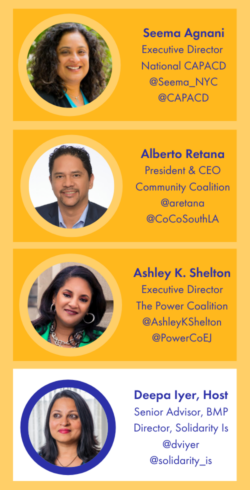May
26
2020
On May 13, the Building Movement Project and SolidarityIs hosted the second webinar in our “Nonprofits and COVID-19” series. The webinar featured Ashley K. Shelton of The Power Coalition, Seema Agnani of National CAPACD, Alberto Retana of Community Coalition, and our host Deepa Iyer, BMP’s Senior Advisor and Director of SolidarityIs.
You can find materials here:
Below are three main takeaways:
1. People-centered recoveries and people-powered organizations are critical in crisis response for the short and long run.
When looking back at past crises, our speakers reminded us that people-centered recoveries and people-powered organizations are vital. As in the case of the 2008 recession, Katrina, and 9/11, the recovery periods can take decades and involve multiple stakeholders. People-centered recoveries require a commitment to centering and addressing the needs of directly affected communities. This means that there are race-based assessments of impact and race-explicit interventions (rather than race-neutral ones). In addition, our speakers reinforced the importance of creating recovery plans that center the most affected communities, and of supporting those communities with frontline services and resources. Our speakers also recommended that non-profit organizations collaborate and build together, rather than compete with each other for a limited set of resources. This also includes investing in the well-being of staff who are dealing with long-term direct and/or vicarious trauma.

2. Philanthropy must invest in people-of-color led nonprofits and in base building and organizing.
Our speakers recommended that philanthropy should provide both short-term and long-term infrastructure in people-of-color led nonprofits. This infrastructure should enable organizations to respond to immediate needs as well as build people-powered strategies such as organizing, base-building, and solidarity practice. In addition, philanthropy should create space for unlikely alliances to form through convenings and gatherings, and should invest in the long-term leadership of movement leaders. Speakers recommended that philanthropy take risks with new organizations especially in crisis moments.
3. Rather than resilience, let’s rebuild and reimagine.
One of our speakers, Ashley Shelton, spoke about how the concept of resilience doesn’t necessarily mean that systems and conditions have changed, but only that people have become stronger to endure the inequity of those systems. Shelton challenged us to rebuild and reimagine systems rather than merely build community resilience. Another of our speakers, Alberto Retano, described how crises including COVID-19 are “social reveals” which expose the dominance of white, male, heteronormative interests and a clear assessment of where power lies. Seema Agnani spoke about how systems from health to housing to the economy should be reimagined by centering people over profit, and community-based realities over blanket policies.
For more on our speakers and their organizations, please visit the websites below and check out our COVID-19 Resource List for impacted communities and nonprofit organizations.

